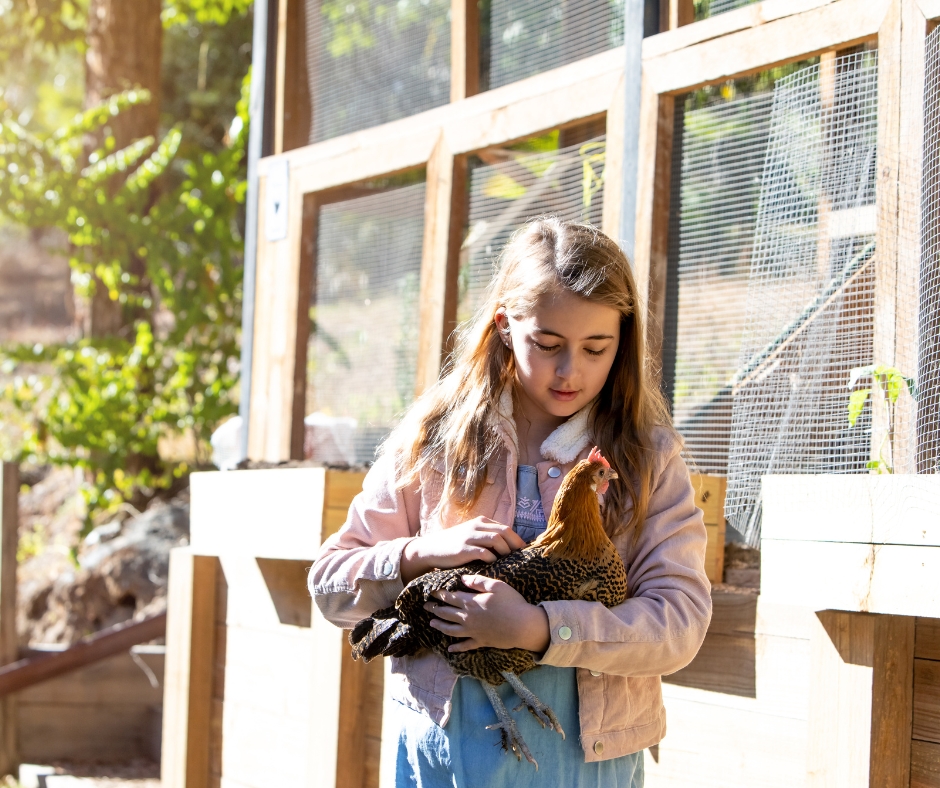Growing your own food and cooking at home is a great way to save money, but it’s important to arm yourself with the right knowledge and follow good food safety practices to reduce the risk of foodborne illness.
Food safety basics for cooking at home
More people are choosing to stay in and cook their own meals to save money. Cooking in bigger batches can also be more economical, creating extra meals that are super convenient.
 However, it’s important that leftovers are managed safely. Portion them out into smaller sizes to cool down properly before being refrigerated or frozen. When it comes time to eating leftovers, meals should be defrosted in the fridge, not on the kitchen counter, and reheated to 70oC.
However, it’s important that leftovers are managed safely. Portion them out into smaller sizes to cool down properly before being refrigerated or frozen. When it comes time to eating leftovers, meals should be defrosted in the fridge, not on the kitchen counter, and reheated to 70oC.
Some other rules to follow when preparing food at home include:
Keep it clean
- Wash your hands before handling or eating food.
- Keep your chopping boards, utensils, and kitchen space clean.
- Separate raw and cooked foods to avoid cross-contamination.
Store appropriately
- Stack your fridge so that raw foods are on the bottom shelf and ready-to-eat foods are at the top.
- Try to keep food in its original packaging so you know the use-by or best before dates. If in doubt, throw it out.
Maintain correct temperature
- Check your fridge temperature. Perishable foods should be kept at 5oC or lower.
- Cook or reheat food thoroughly. Reheating leftovers to 70oC in the centre is generally safe.
Growing your own food
Growing your own fruit and vegetables is an economical choice for families, not to mention an enjoyable hobby for gardening enthusiasts. However, your veggie patch needs to be well planned out to ensure your home harvest is safe to consume.
Some things to think about when designing your vegetable patch:

Location
- Your veggie patch should be situated away from rubbish or equipment that may contain chemicals that could leak into the garden or attract vermin.
- Wild birds, pets and vermin can be a source of contamination. Keep your veggie patch protected from any animals that could poop in it. Be aware of trees or bushes overhanging your garden as wild birds might “bless” your veggies.
Watering
- Consider what you are growing and what water source is appropriate. For example, avoid using grey water on ready-to-eat vegetables, like lettuce.
- Once harvested, wash fruit and vegetables under clean, cool running water before use.
For more tips on growing your own fruit and vegetables safely visit the Food Safety Information Council website.
Keeping backyard chickens
Keeping backyard chickens and other poultry is another way to cut down on food costs, while teaching kids about where food comes from.
Unfortunately, eggs do come with some risks if not managed correctly. Birds can carry Salmonella, which can transfer onto the eggs that they lay. For this reason, if you have cracked or dirty eggs from your flock, they should not be eaten. Some cracks will be visible and others may not. Shine a torch behind the egg to identify any hairline cracks not visible to the human eye.

If you keep backyard chickens, here are some things to remember:
- Collect eggs quickly after laying
- Clean your eggs by wiping with a dry cloth (not washing in water)
- Regularly clean your birds’ feed, water containers and nest boxes and keep these away from wild birds, pets, and vermin
- Know the signs of disease to look for in your birds
- Always wash your hands after handling birds and raw eggs
- Avoid serving raw or runny eggs to vulnerable people, such as young children, the elderly and the immunocompromised
Don’t give eggs away to friends and neighbours. Producing your own eggs for personal consumption is fine, but supplying eggs to others (even for free) is in breach of Queensland legislation.
More tips about keeping backyard poultry are available here.
Consumers are becoming more resourceful as they look for ways to adapt to the rising cost of living. By following these food safety tips, you’ll be able to reduce food waste and save money, while ensuring that you and your family remain safe.
